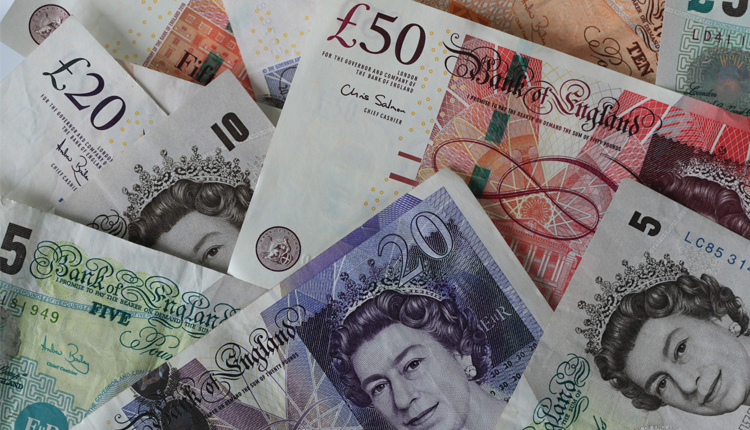The pound nursed heavy losses on Wednesday after tumbling when Britain re-set a hard deadline for quitting the European Union, rekindling old fears of a chaotic exit from the bloc.
The 1.6 percent plunge was the steepest in more than a year and wiped out gains after Prime Minister Boris Johnson’s landslide electoral victory last week. His government, which campaigned to get Brexit done, set the end of 2020 as an immovable deadline.
“With the level of frothiness in positioning, I think people had priced in this very smooth sailing throughout 2020,” said Chris Weston, head of research at Melbourne brokerage Pepperstone.
“This has given us a snap back to reality. If you thought Brexit was solved and we’re going to see very, very smooth times ahead, then that’s not quite going to be the case.”
Sterling, which soared above $1.35 after Johnson’s win, last traded at $1.3133, below where it sat before polling day. Against the euro, the pound dropped as much as 1.8 percent before recovering slightly to sit at 84.92 pence per euro.
The slide supported the dollar to its highest in a week against a basket of currencies and lifted the safe-haven Swiss franc a little.
Asked if the government would legislate to rule out any extension of the transition beyond 2020, one of Johnson’s most senior ministers, Michael Gove, said: “Exactly, absolutely.”
In Brussels, officials said the timetable was rigid and likely to limit the scope of any deal.
Elsewhere moves were slight as trading slows down into the holiday season and as the currency market waits for details on the China-U.S. trade deal.
German business sentiment data is due later on Wednesday, along with a speech from European Central Bank chief Christine Lagarde at 0830 GMT and remarks from U.S. Federal Reserve Chicago President Charles Evans at 1740 GMT.
The greenback was steady on the euro at $1.1151.
The kiwi was knocked by an unexpectedly steep drop in dairy prices, the top national export, pushing the currency to a week low of $0.6565.
The Australian dollar held near a week low as well after the Reserve Bank of Australia (RBA) December minutes, released on Tuesday, foreshadowed possible easing in February.
“The RBA minutes struck a more dovish tone than the statement on the day, specifically citing the February meeting as a suitable time to reassess the (currently upbeat) outlook,” Westpac analysts said in a note.
Futures markets have priced an even chance of a benchmark rate cut from an already record low 0.75 percent.
Source: Reuters
